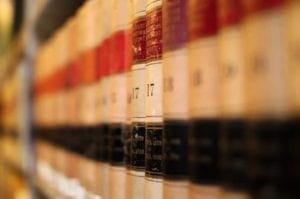 Murphy et al. v. Snyder et al., No. 18-1578, 2019 WL 4308631 (2d Cir. Sept. 12, 2019).
Murphy et al. v. Snyder et al., No. 18-1578, 2019 WL 4308631 (2d Cir. Sept. 12, 2019).
Ruling on a matter of first impression for the court, a panel of the Second Circuit held that a prior default judgment entered as a sanction may have a preclusive effect when determining dischargeability in bankruptcy. In this case, two debtors were prevented from contesting they committed a defalcation under a theory of collateral estoppel.
The debtors were the brother- and sister-in-law of the Murphys, plaintiffs in this case, who worked in the custom home building business. The Murphys entered into multiple agreements with the debtors to invest in real estate projects, and the debtors promised that the plaintiff’s original investment amount be repaid, in addition to a twenty percent return on each transaction. The Murphys sued the debtors after they failed to repay the investments, asserting several counts including breach of contract, conversion, breach of fiduciary duty, fraudulent inducement, and unjust enrichment. Following serious deficiencies in their responses and failure to comply with discovery requests, the U.S. District Court for the Eastern District of New York entered a default judgment against the debtors. After the default was entered, the debtors filed for bankruptcy protection.
The Murphys commenced an adversary proceeding seeking a declaration that the District Court judgment was nondischargeable under 11 U.S.C. §§ 523(a)(2)(A), 523(a)(4), and 523(a)(6). Under these sections of the Bankruptcy Code, a debt may be held nondischargeable where it is obtained through fraud, false pretenses or deceit, “fraud or defalcation while acting in a fiduciary capacity,” or “willful and malicious injury by the debtor to another entity or to the property of another entity.” On a motion for summary judgment by the Murphys, the Bankruptcy Court found the default judgment showed the Murphy’s claim was nondischargeable because it was based on a defalcation under § 523(a)(4).
The Second Circuit concluded the lower court properly gave the default entered against the debtors a preclusive effect. While default judgments are not ordinarily given preclusive effect, the Second Circuit joined several other circuits in recognizing an exception: “where the default judgment is entered as a sanction for bad conduct, and the party being estopped had the opportunity to participate in the underlying litigation, the default judgment has preclusive effect when determining the nondischargeability of a debt in a bankruptcy proceeding.” This principle furthers the goal of imposing the original sanction by preventing parties from relitigating issues that should have been addressed in the first litigation.
However, the Second Circuit did not uphold the findings of the bankruptcy court in its entirety, but instead divided their finding of nondischargeability between the real estate investment projects at issue. The Court affirmed part of the debt associated with one project was nondischargeable based on a finding of defalcation, and vacated and remanded the part of the debt associated with different project for further findings of fact.
